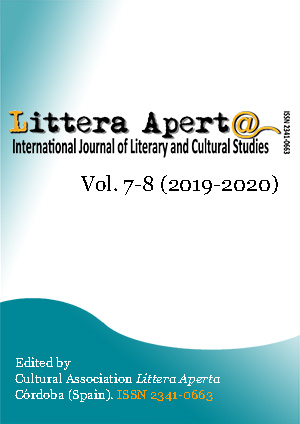“Al margen de Cicerón. Querido amigo”: la recepción de Cicerón en la poesía de Jorge Guillén “Al margen de Cicerón. Querido amigo”: The reception of Cicero’s De amicitia in the poetry by Jorge Guillén
Main Article Content
Abstract
The poem “Al margen de Cicerón. Querido amigo” by Jorge Guillén (1893-1984) was included in the “Al margen” section of the poetry book Homenaje (1967). This text invites the reader to explore an exciting manifestation of Classical reception in Guillén's poetry. After delving into Cicero’s treatise Lelius or De amicitial, the professor-poet offers a profound reflection on the nature of friendship and the challenges it must confront. Ultimately, Guillén concludes that friendship is one of the most crucial values in human life. Allegedly, the group of poets known as the “Generation of 27” is often referred to as the “generation of friendship”, and Jorge Guillén, as the poet of friendship, shows particular interest in Cicero’s treatment of this subject matter.
Keywords Jorge: Guillén, Cicero, Laelius de amicitia, Classical Reception, intertextuality.
Downloads
Article Details
Authors who publish with Littera Aperta agree to the following terms:
- Authors retain copyright and grant the journal right of first publication with the work simultaneously licensed under a Creative Commons Attribution 4.0 International License that allows others to share the work with an acknowledgement of the work's authorship and initial publication in this journal.
- Authors are able to enter into separate, additional contractual arrangements for the non-exclusive distribution of the journal's published version of the work (e.g., post it to an institutional repository or publish it in a book), with an acknowledgement of its initial publication in this journal.
- Authors are permitted and encouraged to post their work online (e.g., in institutional repositories or on their website) prior to and during the submission process, as it can lead to productive exchanges, as well as earlier and greater citation of published work (see The Effect of Open Access).
